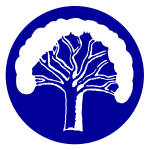History
Through the teaching of history, children at Woodcote Primary School develop their interest, fascination and curiosity, understanding the world and our place in it. Learning history will help pupils develop coherent knowledge and understanding of Britain’s past and that of the wider world. It should inspire pupils’ curiosity to know more about the past. Pupils should be encouraged to ask perceptive questions, think critically, weigh evidence and develop perspective and judgement. History helps pupils to understand the complexity of people’s lives, the process of change, the diversity of societies and relationships between different groups, as well as their own identity and the challenges of their time.
History in EYFS (Woodies & Reception)
In the Early Years Foundation Stage (EYFS), history skills develop through Understanding the World. Children explore concepts of past and present, connecting personal history to wider contexts. They identify similarities and differences, sequence events, and explore fairy tales, gaining insights into societal changes. Comparing toys from different eras helps them understand changes and consequences.
History in KS1 (Years 1 & 2) and KS2 (Years 3 – 6)
In Key Stages 1 and 2, History is delivered through the International Primary Curriculum (IPC), empowering pupils to interpret periods and events confidently, developing their skills, knowledge and understanding over time. Through the IPC units, students explore:
- Britain’s past
- ancient civilizations
- significant events
- people and places in their localities and beyond
The learning journey through the topic starts with an ‘Entry Point’, which is followed by a development of skills and knowledge from a range of curriculum areas. Learning is applied through an ‘Exit Point’ at the end of each topic where children can demonstrate and apply their knowledge and skills. Teachers will organise high-quality learning experiences within a topic giving the children opportunities to build upon their skills across the year.
The curriculum integrates with the National Curriculum, ensuring students meet statutory requirements creatively. The National Curriculum for History aims to ensure that all pupils:
- know and understand the history of these islands as a coherent, chronological narrative, from the earliest times to the present day: how people’s lives have shaped this nation and how Britain has influenced and been influenced by the wider world
- know and understand significant aspects of the history of the wider world: the nature of ancient civilisations; the expansion and dissolution of empires; characteristic features of past non-European societies; achievements and follies of mankind
- gain and deploy a historically grounded understanding of abstract terms such as ‘empire’, ‘civilisation’, ‘parliament’ and ‘peasantry’
- understand historical concepts such as continuity and change, cause and consequence, similarity, difference and significance, and use them to make connections, draw contrasts, analyse trends, frame historically-valid questions and create their own structured accounts, including written narratives and analyses
- understand the methods of historical enquiry, including how evidence is used rigorously to make historical claims, and discern how and why contrasting arguments and interpretations of the past have been constructed
- gain historical perspective by placing their growing knowledge into different contexts, understanding the connections between local, regional, national and international history; between cultural, economic, military, political, religious and social history; and between short- and long-term timescales.
Trips & Experiences for History 2023-24
Woodcote Primary School aims to ensure that children are experiencing a range of learning opportunities both inside and outside of the classroom to support the development of their learning skills and knowledge. Through developing pupils’ enjoyment, excitement and interest with enriching activities we are able build and encourage curiosity. Woodcote aims to deliver a challenging and ambitious curriculum to equip children with the skills, knowledge and understanding needed for their next stage of learning.
Year 1: Pirate Workshop (Autumn 2), History of Coulsdon project (Spring 1)
Year 2: Brooklands Museum, Virtual Local Tour of Coulsdon (Spring 1); dress as a historical individual (Summer 2)
Year 3: Transport Museum (Summer 1); Cavewoman Visit (Summer 2)
Year 4: British Museum (Autumn 2); Bluebell Railway (Summer 2)
Year 5: Roman Workshop (Spring 1); Globe Theatre (Spring 2); Castle/Stately Home (Summer 1)
Year 6: British Museum to support learning aroud Mayans & Kingdom of Benin (Spring 1)

